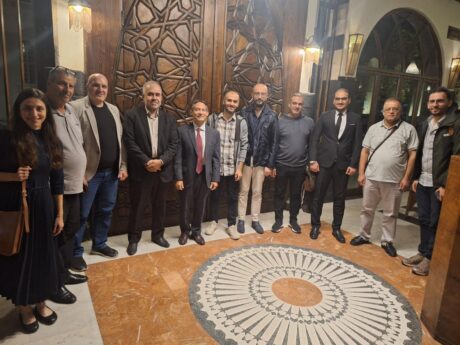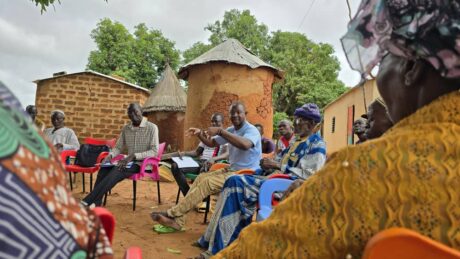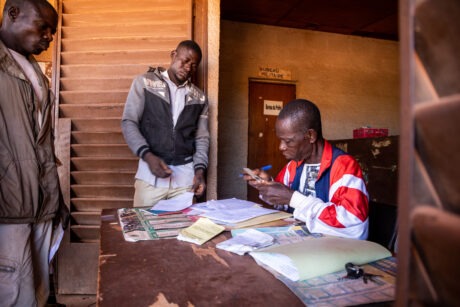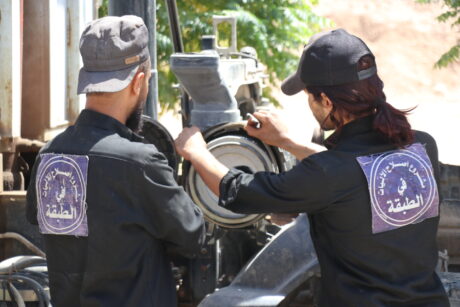Construir confiança entre autoridades e constituintes, a prestação de serviços locais e a demonstração do valor dos modelos democráticos estão entre os elementos-chave de uma governação local responsiva em países frágeis., áreas de conflito e pós-conflito, De acordo com especialistas que estão implementando programas em locais desafiadores.
Falando durante um webinar chamado “Fortalecimento da governança local em conflitos e configurações frágeis," três palestrantes delinearam os desafios e estratégias que eles e seus pares enfrentam ao apoiar iniciativas em contextos tão fluidos. O webinar completo é disponível online.
Os implementadores que executam programas de governança em configurações frágeis e de conflitos precisam encontrar um equilíbrio entre promover os conceitos de democracia, como inclusão, participação e transparência, enquanto fornece suporte para necessidades imediatas e críticas e serviços essenciais.
Neila Akrihi, Doutorado, Chefe de Programação para a África Francófona na VNG International e diretor do Centro Internacional de Governança Local Inovadora do VNG, disse durante o NOV. 20 Webinar que sua organização prioriza a coesão social e a paz social em seu trabalho para fortalecer as instituições do governo local em conflitos e áreas frágeis.
“Nossos programas sempre se concentraram em um princípio central importante, que está reorientando -se na abordagem participativa como um veículo para coesão social e paz social,"ela disse, Observando que os governos locais são atores -chave e têm a maior proximidade com os moradores.
Atender às necessidades imediatas
As comunidades em configurações frágeis e de conflitos têm necessidades urgentes, exigindo que as autoridades construam ou reconstruam os serviços básicos do governo enquanto o operam simultaneamente, disse o painel Mohamad Hamish, o Chefe do Partido do Departamento de Estado financiado ROUBADO III Programa no nordeste da Síria.
"Muitas vezes, há essa tensão entre as necessidades imediatas" e o papel de uma comunidade na governança, Ele disse em resposta a uma pergunta sobre o webinar. “Você tem pessoas que querem ou têm [recentemente] voltou para suas casas, E eles precisam de água e eletricidade. ” Os programas precisam reconhecer que essas condições podem limitar a capacidade dos cidadãos de se envolver, enquanto ainda criam espaços para alimentar suas contribuições e prioridades para funcionários do governo local e outros prestadores de serviços.
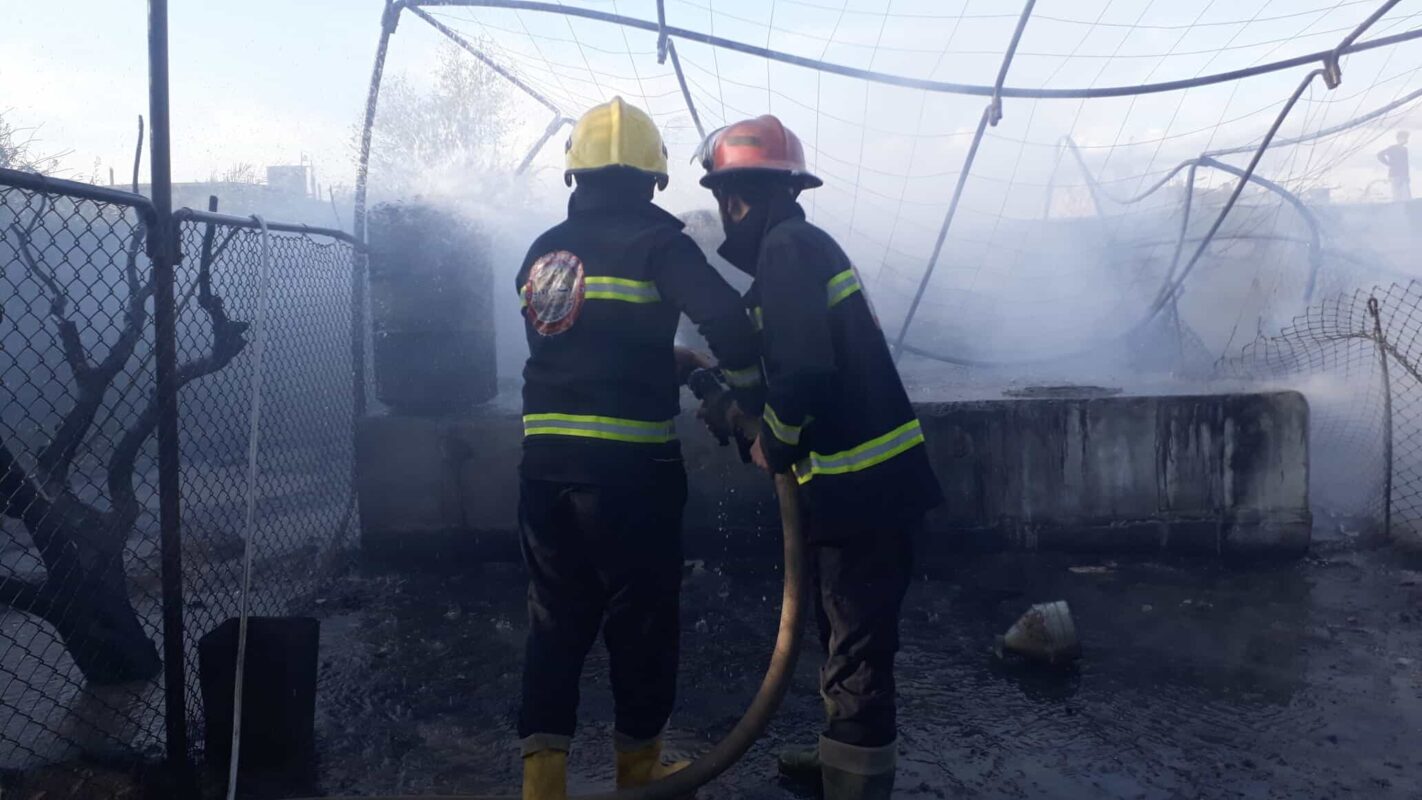
Em Deir Ezzor, a maior cidade do nordeste da Síria que era única sob o controle do ISIS, O programa Furat III, financiado pelo Departamento de Estado, descobriu que os moradores queriam uma voz em como os serviços básicos eram determinados e entregues. “Eles estão procurando participar do político [processo] e esteja envolvido e envolvido na decisão do que é melhor para sua comunidade, O que é melhor para suas áreas também. ”
Para encontrar esse equilíbrio, Furat III trabalha com parceiros da comunidade e conselhos locais para executar pesquisas de percepção, precisa de avaliações, Prefeitura e divulgação comunitária para obter feedback e adesão sobre prioridades e soluções. Simultaneamente, Os conselhos locais se concentraram em fornecer água fresca, fornecendo serviços de emergência, revitalizando equipamentos antigos e garantir outros serviços básicos dos quais os bairros dependem.
“Promover essa abordagem inclusiva e participativa é desafiadora,"Hamish disse, particularmente quando a maioria das entidades de governança local não possui experiência técnica e gerencial. A Furat III trabalha para construir essas habilidades necessárias, incentivando as autoridades a trabalhar em estreita colaboração com a comunidade.
“Não é um trabalho fácil envolver a comunidade e prestar serviços ao mesmo tempo, especialmente durante a crise, especialmente após a libertação,"Hamish disse.
Uma abordagem de baixo para cima
Os resultados dos esforços de governança local nas áreas liberadas da Síria e em outras partes do Oriente Médio podem ser atribuídas à Primavera Árabe. Akrimi disse que a primavera árabe mudou a dinâmica de governança, mudando de uma abordagem de cima para baixo para baixo, com o objetivo de torná -lo mais inclusivo e equitativo.
Ao trabalhar com governos locais, “Precisamos manter a perspectiva da mudança de modelos institucionais culturais muito importantes,"ela disse. "Também, Precisamos muito para criar uma esperança atual ou de momento com as coisas feitas, Seja na criação de empregos ou na criação de iniciativas que realmente fazem do governo local ser útil para a comunidade. ”
Construindo a democracia durante a fragilidade
Em Burkina Faso, A situação no solo é desafiadora, pois o país sofreu dois golpes desde janeiro 2022, um aumento no extremismo violento, 2 milhões de pessoas deslocadas internamente e um histórico de serviços governamentais muito necessários, mas mal prestados.
Com este pano de fundo, apoiado pela USAID Governança Inclusiva para Resiliência O programa trabalha com as autoridades locais e a sociedade civil para preencher a lacuna entre a prestação de serviços, Participação da comunidade e valores democráticos.
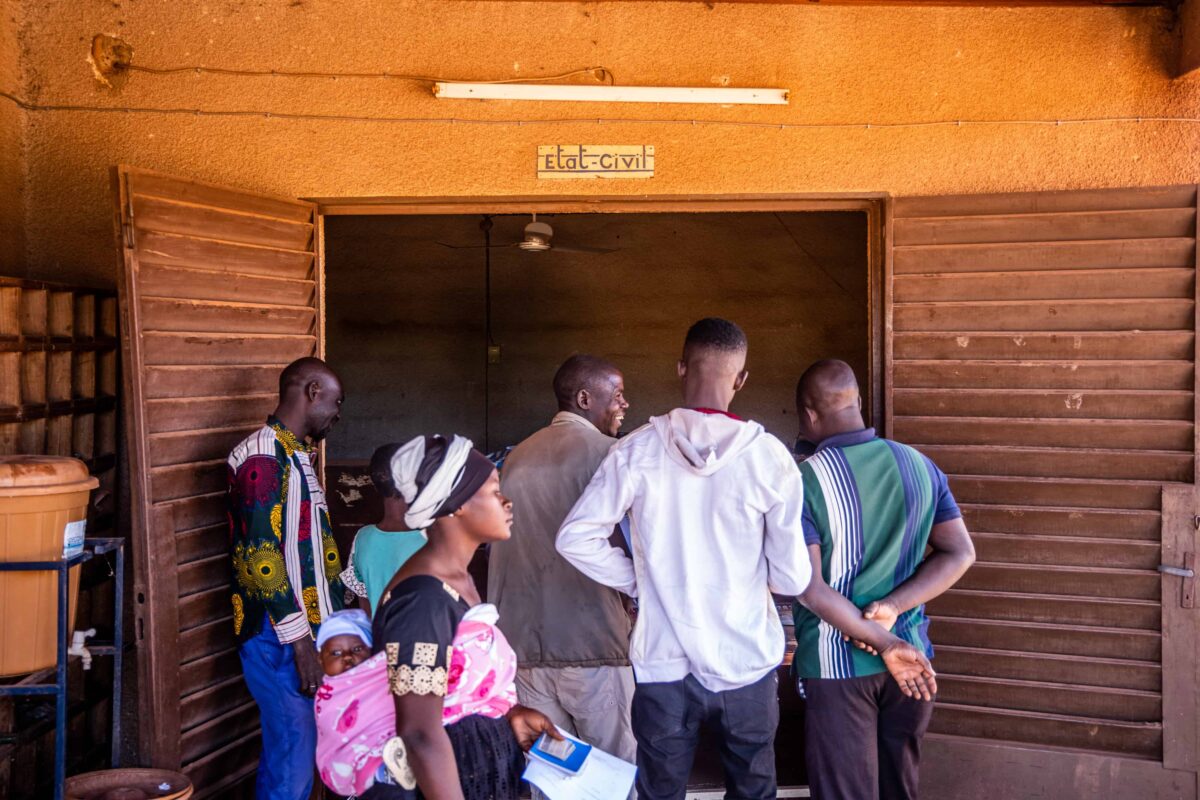
A situação "atingiu um nível em que grande parte da população não quer ouvir sobre a democracia e isso se deve ao fato de a população ter reduzido a democracia à realização das eleições, que agora são criticados em Burkina Faso,"Disse Siaka Oedraogo, Chefe do Programa de Governança Inclusiva do Partido da USAID para Resiliência.
Em maio, Governo militar de Burkina Faso estendeu seu termo de transição por cinco anos, com a possibilidade de realizar eleições antes do final desse período.
Apesar disso, Ouedraogo disse que promover valores democráticos pode fazer parte e alinhar -se com a prestação de serviços básicos do governo. A governança inclusiva para o programa de resiliência foi lançado workshops de co-criação com funcionários e comunidades para garantir a participação local no processo de tomada de decisão, que aumentou as comunicações e construiu um grau de confiança entre os dois grupos.
Ao trabalhar com comunidades - particularmente populações marginalizadas - as autoridades têm uma melhor compreensão das necessidades de seus constituintes. "Então, Os principais jogadores que não se davam foram capazes de discutir o problema e as soluções comuns,"ele disse. "Essa abordagem leva a uma boa base para a inclusão de todos os principais atores" e melhorar a coesão social.
Democracia durante o conflito
Com a luta de Burkina Faso com extremistas violentos e as causas subjacentes que a alimentam, Ouedraogo diz valores democráticos e eficazes, Instituições responsivas podem servir aos esforços dos governos, sociedade e comunidades civis para conter os avanços desses atores não estatais.
“A democracia é vista como um tijolo em potencial na luta contra o terrorismo,"Ele disse durante a sessão do painel de 90 minutos. "Então, para promover valores democráticos no nível local, As autoridades locais precisam [mostrar] Os resultados concretos da aplicação de certos princípios democráticos e ações de estabilização e construção da paz precisam estar ligados a valores democráticos. ”
Akrimi disse que os princípios e processos democráticos estão sob pressão de várias forças, incluindo pandemias, autoritarismo e desastres naturais. Felizmente, Anos de foco em boa governança e inclusão social fizeram a diferença.
“Em todos esses anos, Houve muitos investimentos na sociedade civil e em parcerias entre locais [autoridades] e sociedade civil,”Disse Akrimi. “E notamos que quando se trata de democracia, A crença de que a democracia é o único caminho a seguir quando se trata de ter uma prestação de serviços eficazes [e] Certificando -se de que as políticas locais estão realmente ligadas às necessidades da comunidade local [ainda está lá] Apesar dos desafios de diferentes crises. ”
